How to Integrate Shopify with Facebook for More Effective Ads
It’s no secret that our favorite eCommerce platform is Shopify. Our clients have seen big sales increases when we’ve taken advantage of the online retail powerhouse’s features.

Take Shopify’s integration with Mailchimp — we used it to boost email-directed sales for our client Weatherall by nearly 3,000% (nbd…jk, it’s a big deal).
Some of the other benefits of using Shopify for eCommerce include:
- Secure, reliable and easy to use
- Social media integration
- Automatically mobile-friendly
- Customizable via Shopify’s app store
- Great customer support
- Configured for SEO
- Includes analytics toolbox
- Automated cart abandonment reminder emails
- Works with almost all payment systems
And now, one of the newest items to add to the list of Shopify’s features is its ability to integrate with Facebook’s Ads Manager to create dynamic retargeting ads based on data from your website.
What are Dynamic Ads?
Dynamic ads use data about each individual customer to show them unique advertisements based on their search and browser history. So if someone recently purchased a new phone, a dynamic ad could show them phone cases for the specific model they bought.
And if they searched for phone cases in general, a dynamic ad could tout the features of a specific phone case, and even offer a discount to pull sales away from competitors.
This is powerful stuff — when we tapped into dynamic retargeting ads for our client Mountain Home Building Products, we saw a 312% increase in the return on their ad spends.
With Shopify’s integration with Facebook Ads, you can make the most of both tools to drive more traffic and more sales.
Integrating Facebook and Shopify for More Effective Ads
When you connect Shopify to Facebook, you’re basically creating a system through which you can track site users and find them again on Facebook, the world’s most popular social media platform, so you can continue to lead them down the sales funnel from there.
There are three custom advertising features you can take advantage of when you link Shopify to Facebook ads:
1. Custom Audiences
Once your Shopify store is linked to Facebook, data is shared between the two platforms. You can then create customized audiences for ads on Facebook, based on behavior in your store.
For example, you can make a custom audience of people who have visited your Shopify store in the last 24 hours and advertise directly to those same people on Facebook.
Other examples of custom audiences include:
- People who visited your site in the last year but haven’t been back in over a month
- Visitors to a specific product page on your website
- People who have visited one specific page but not another specific page — imagine if someone viewed a product but never bought it. You could show them a similar product that comes at a lower price or offers slightly different features.
2. Custom Conversions
A conversion is an event in which a customer does something you want them to. This could be signing up for your email list, making a purchase, viewing a product, adding a product to their cart or wishlist, etc.
With custom conversions on Facebook, you can track unique activities and use that information to automatically optimize your ads to be more effective.
This is a bit hard to explain without an example, so let’s look at one: Imagine the scenario from earlier with the phone cases.
Since you want to sell more of the type of cases that have a higher profit margin, you could create a custom conversion that tracks when someone clicks on a Facebook ad and ends up buying a case that costs $100 or more.
Once you’ve logged a number of those purchases, Facebook ads can look at which specific ad is leading to those higher-end purchases, as well as common traits among the people who made those purchases.
With that data, Facebook can optimize your campaigns to show the right ads to the right people, increasing the conversion rate of your ads for your money-making products.
You can use this feature for more than just purchases. Custom conversions mean you can optimize to get more subscribers to your newsletters, more downloads of an eBook, or just more eyes on a certain product. It’s totally customizable, and it’s totally up to you.
3. Custom Events
This is the most advanced feature allowed by the Shopify and Facebook ads integration. Done well, custom events can lead to more personalized ads which should lead to more conversions.
You can think of a custom event as a custom conversion but with more flexibility. A custom conversion tracks when a user ends up at a specific URL. A custom event can also track when a user does really anything anywhere on your website, regardless of whether the event comes with its own URL.
Some examples of custom events that can be reliably tracked using this feature include:
- Views of a specific video
- Leaving a comment
- Clicking a button (e.g., social share, promo code share)
- Using an interactive tool
You create such events by adding custom code to your site. Facebook ads can then log custom event occurrences and use that information to optimize ads accordingly.
Pro-tip: Custom events aren’t the simplest feature. Our web dev team can help you implement whatever you dream up.
Learn more about our web development services here »
How to Integrate Your Shopify Store with Facebook Ads
Linking Facebook ads to your Shopify store is easy: You just need to install the Facebook pixel on your site, which means copy and pasting your Facebook pixel ID number into your Shopify online store settings. Facebook provides a guide on how to install the pixel onto your Shopify store here»
Once you’ve got that set up, you’ll be able to add custom audiences, custom conversions, and custom events via Facebook’s Ads Manager — the pixel will track traffic on your website accordingly.
Shopify has a very helpful guide on how to create custom Facebook ads here »
More Ways to Increase Sales on Shopify
Another powerful feature of Shopify is its themes, which are ready-to-use templates designed solely for eCommerce success. That means simple, fast, and convenient browsing, item selection, and checkout to minimize cart abandonment.
Learn more about how to find the perfect Shopify theme to increase cart conversions »
Other Articles
Mastering Black Friday Cyber Monday Campaigns: Strategies for Outdoor Retail Brands
Black Friday Cyber Monday (BFCM) has become a pivotal period for businesses across various industries, and the outdoor retail sector...
Why Leveraging Discounts Can Give Your Business a Competitive Edge
Consumers today have an infinite amount of information at their fingertips. Amid the sea of brands and products they have...
Navigating the Off-Season: Marketing Strategies for Outdoor, Overlanding, and Camping Brands
The world of outdoor adventure, overlanding, and camping is fueled by the passion for exploration, nature, and the thrill of...



